How to clean the pipe from soot
Smoke rooms are not only undesirable, but also dangerous: carbon monoxide from atmospheric air, entering the human body, blocks the access of oxygen to tissue cells of all organs, disrupts biochemical processes in tissues, resulting in hypoxia and poisoning, leading even to death.
The room is smoked due to poor traction in the pipes of furnaces, fireplaces and boilers, which require timely cleaning from soot. This procedure should be carried out at least once a year, as a preventive measure - every 3 months. The chimney requires cleaning if the soot layer is more than 2 cm.
Why not thrust?
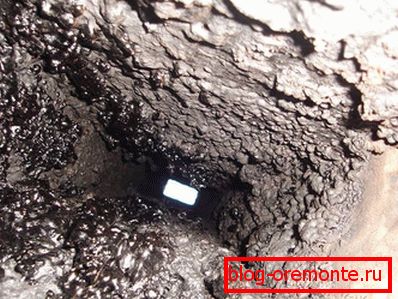
Why is there a decrease in thrust? Due to the narrowing of the lumen of the pipe as a result of the ash product burning on its walls. The output of smoke in this case is impeded, carbon monoxide accumulates and finds other ways of exit, that is, into the room. Thick ash deposits prevent the chimney walls from heating up, which also results in reduced thrust.
The accumulation of soot in the chimney is also undesirable because at high temperatures it may begin to burn, this will lead to the formation of cracks on the walls of the chimney and its early destruction. But the more dangerous consequences of burning soot in the chimney may occur due to sparks coming out and, as a result, contribute to a fire, which is much more serious.
The logical question is how to clean the pipe from soot? There are two ways to remove soot - by chemical reaction and mechanically.
Mechanical way
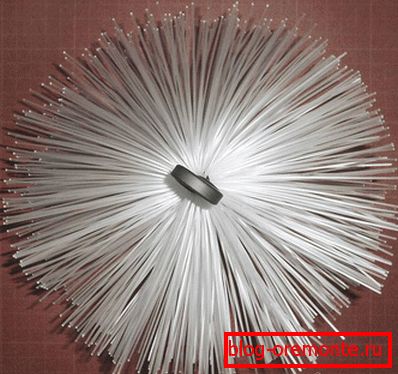
The mechanical method of cleaning the chimney from the ash, as the most accessible to any user, has been used since ancient times. Today it is rarely possible to meet chimney sweepers in all their uniforms on the street; nevertheless, this profession remains in demand. The main working tool of a chimney sweep is either a metal ruff or a brush with stiff metal bristles, a chain or a long wire. A scraper is also used for rough cleaning or a heavy round core. Consider the procedure for cleaning soot on the example of a stove or fireplace with an external chimney.
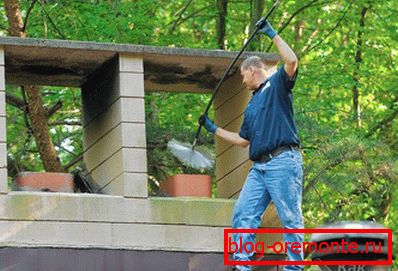
- It is better to carry out such work in dry, calm weather.
- First you need to close the valve on the stove pipe or the fireplace door inside the room (at home) so that the soot disturbed by you does not spread indoors.
- Next, the landlord climbs onto the roof of his house, not forgetting the means of insurance.
- Release the chimney from any debris or bird's nests — push it down with a heavy core on a cable or remove it from above.
- Rough cleaning is carried out with a scraper, then the carbon black is cleaned with any of the tools mentioned above - a brush, a metal brush, a chain or wire.
- After cleaning the chimney or pipe, you should carefully open the flap or doors from the room side, remove the scattered soot and debris with a brush with a trowel (soot spoon), clean the debris with a vacuum cleaner.
- The final stage - cleaning the fireplace insert or blew.
Chemical method
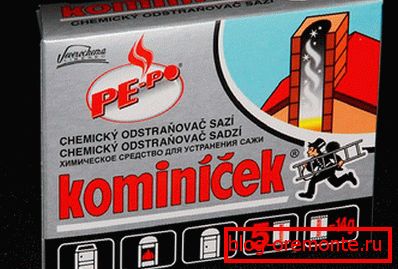
Cleaning of pipes and chimneys from soot in this way is carried out with the help of chemicals in the form of briquettes, powder or liquid. The chemical cleaning method can be used more often for the purpose of prophylaxis due to its convenience and low labor intensity. The essence of this method is as follows: during the burning of firewood in the furnace add the exact portion of chemicals. Gases emitted during the combustion of these substances are harmless to humans, but destroy the structure of soot, which crumbles down. What substances to choose, than to clean the pipe from soot by chemical means?
The most common chemical agents are anti-joint chemical composition (PCC), Kominichek and logs, the most popular.
PCC is a powder that is burned directly in the package with firewood or charcoal or separately from them. According to the instructions, the flow rate should not exceed 150-200 grams of PHC powder.
Cominic is a product produced in the Czech Republic, packaged in 5 bags weighing 14 grams each. For the maintenance of one package of this tool is enough for 3 months. Comin is effective if the soot plaque is not more than 2 mm. Soot and soot under the influence of this tool as a result of a catalytic reaction is converted to oxides and burns without the formation of fire.
The most popular, especially for brickwork chimneys, a log-chimney in the form of a briquette or a bar, during combustion, emits volatile substances, under the influence of which creosote deposits on the walls of pipes and chimneys are dried and dropped into the furnace. It is also convenient to use as a preventive measure.
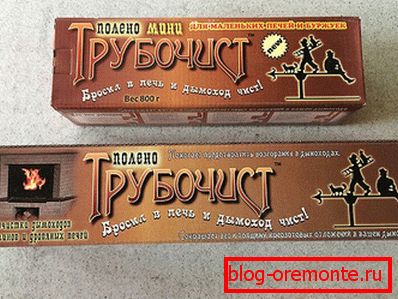
Log-chimney sweep contains coal wax with coal dust, sawdust, urea, silica and other chemicals.
This tool inhibits the burning of ash, which extends the life of pipes and chimneys, it is also convenient for processing boilers, stoves or built-in heaters that run on liquid or solid fuel. One log is enough to use once a year if the stove or fireplace is heated 1-2 times a week. With daily use of the stove, 2 logs per year will be required. In large fireplaces and stoves, two logs are used alternately for one duct. Before using logs, chimney sweep should ensure that there is no debris in the pipes.
The efficiency of cleaning from soot using logs will increase significantly if it is removed from the package and burned along with the packaging on old coals from previous heating.
The action of chemicals that make up the chimney logs does not stop for two weeks, during which the destroyed ash continues to crumble into the furnace. It should be regularly cleaned with a brush or vacuum cleaner from the furnace, pipes, chimney knees, from the smoke damper.
Folk remedies

It has long been known folk remedies for the release of smoke channels from the ash with the help of rock salt, which is poured on firewood during their burning, as well as with the help of potatoes - 1 bucket of potato peel or sliced potatoes is poured into a well-heated stove or fireplace. Steam released from potatoes decomposes soot, turning it into dry residues that fall off.
Also used is not the safest way to get rid of soot using alder or aspen wood, the strong burning of which leads to the burning of soot in the chimney, with the result that its white flakes with dangerous sparks fly out through the chimney, settling not only on the roof, but also on the whole the neighborhood.
Useful tips
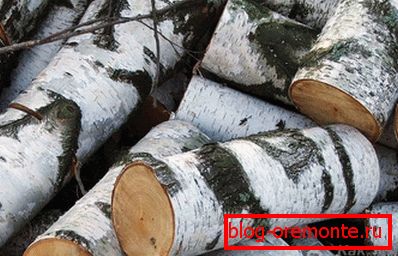
Not the most successful fuel is wet wood or fresh branches: when burning, they emit a lot of soot and steam, which destroys the chimney.
It is not necessary to burn garbage and synthetic materials - plastics, plastic in the furnace: they emit a lot of harmful substances.
Do not use firewood coniferous in the form of fuel. Their resin creates resinous deposits on the walls of pipes and chimneys.
Dry wood of deciduous trees are considered the best.